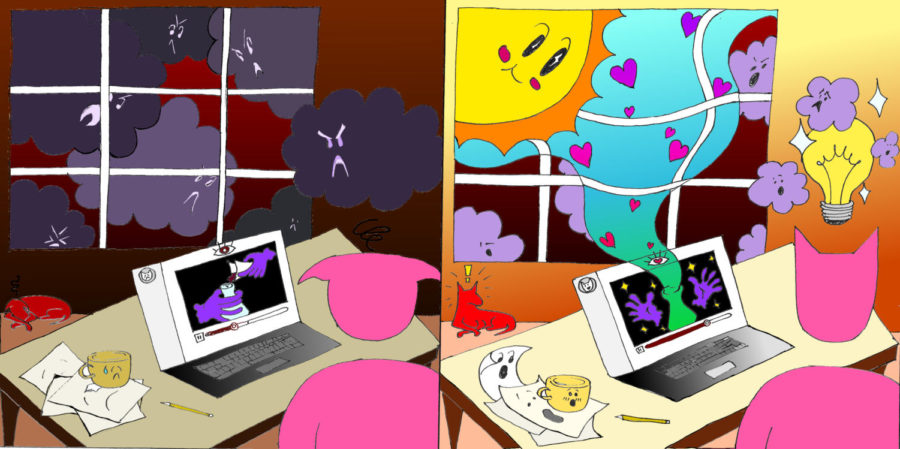The University’s transition to distance learning has posed unprecedented challenges. As we continue to honor our academic and extracurricular commitments remotely, both students and teachers face new obstacles in the form of communication barriers, technical difficulties, and the questions of how to simulate experiential learning. While it may seem that spring quarter is a nonstarter, a dejected attitude will only prevent us from finding unique opportunities to learn. Instead, we should do our best to recognize the lessons we can gather from this experience and how they may continue to be relevant even once we return to campus.
When the reality of a completely remote spring quarter set in for me, I found myself adopting an overly pessimistic outlook. My instinct was to switch into courses that I didn’t think would truly excite or challenge me, because, in my head at least, “all of my classes were going to suck anyways.” While I recognized that my school work still needed to be done in order to maintain academic continuity, the quarter was dead before it had even begun. I just wanted to get my courses over with because I felt like nothing worthwhile could be achieved in these conditions.
I'll admit that the actual start of spring quarter did confirm a lot of my fears. It certainly is difficult to connect with professors and classmates over Zoom. For many of us now back in our childhood homes, the new environment comes with several distractions. And of course, the curriculum itself has been impacted; many courses have been greatly modified to compensate for the infeasibility of most experiential learning opportunities we expect from a typical UChicago quarter. For example, we can no longer conduct experiments to collect our own data during labs, and instead have to accept the numbers we are given and skip to the analysis steps. But now that we’re almost halfway through the quarter, I realized that I was wrong to be so negative about remote learning. This is a reality during which we should all just try to do what we can, and my pessimism was getting in the way of making the most out of the education that I do still have. There are bright sides to the unexpected and unwanted transformation of our learning environment, and it’s worth reflecting on them, especially because we’re not certain how long this disruption will last.
First, this quarter has offered an opportunity to consider how course material may be relevant to the real world, and specifically to the current coronavirus pandemic. My statistics class, for example, is using data related to COVID-19 to teach the concepts normally covered. My public speaking class is incorporating greater discussion of remote communication and how certain elements of discourse are influenced by technology, which are important considerations in today’s tech-driven world. The College is even offering a course specifically in dialogue with the pandemic, Pandemics, Urban Space, and Public Life, which explores how we can cope with the present crisis.
And lastly, our online classroom environments can provide a sense of community and an escape from the other stresses that come with the current pandemic. In a time where social distancing is of the utmost importance and where we have all been displaced from many of the communities through which we would normally seek support, it’s valuable to have our classes as a means to remain connected to each other.
With the excitement and anticipation many of us feel about eventually returning to campus, it will be easy and perhaps instinctual to want to leave the challenges of this experience behind. However, I believe that we can make use of these lessons in a way that transforms even our on-campus education for the better. We can approach our classes with a greater sensitivity for what they imply about our current and future situations in society, whether that be coronavirus-related or with regard to another issue. We can carry with us a greater appreciation for the in-person classroom dynamics and built-in support systems that we previously took for granted or may not have noticed. The coronavirus pandemic has been a wake-up call regarding many aspects of our world—among them are the environment, health-care disparities, and many more. Our educational experience is no exception.
Ketaki Tavan is a first-year in the College.









